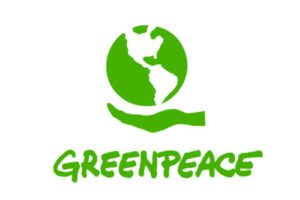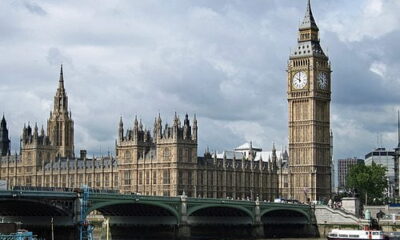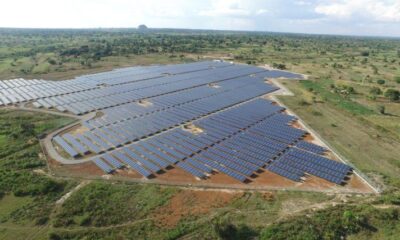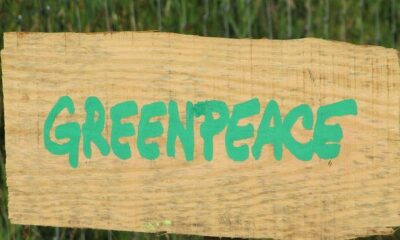

Environment
Greenpeace Africa Uncover Illegal Logging
A trail of stolen timber in Cameroon has been exposed by Greenpeace Africa. Greenpeace Africa led an investigation into illegal logging in the country and found a trial leading to main log exporter Compagnie et de Transport (CCT). There will now reportedly be a government audit into the actions of CCT, including its suppliers.
That audit should include the supplier La Socamba, subject of a Greenpeace briefing released today. The evidence presented in the briefing, La Socamba: How Cameroon’s Stolen Wood Reaches International Markets, demonstrates how CCT, which supplies timber companies worldwide, including in China and Europe, sources timber from La Socamba.
La Socamba is a company engaged in illegal and destructive practices, including logging several kilometres outside their legal logging title. This new case complements evidence already presented by Greenpeace in its reports on CCT suppliers.
On 25 May, in response to Greenpeace offer of a right to response, CCT admitted that Cameroon’s Ministry of Forests and Wildlife (MINFOF) had ordered an audit of the activities of CCT and its suppliers to determine which were involved in illegal activities and to trace the resulting timber.
Eric Ini, Forest Campaigner at Greenpeace Africa, said: “Greenpeace Africa takes note of the audit of CCT’s practices – but stresses that this process should be independent and transparent, and that CCT suppliers are properly sanctioned when illegal activities are confirmed.”
In September 2015, Greenpeace published three cases of illegal logging in permits supplying CCT: logging permits exploited by South Forestry Company (SFC), FEEMAM and SOFOCAM. The Minister of Forestry, Ngole Philip Ngwese, has proclaimed the innocence of companies exposed by Greenpeace for their involvement in illegal logging.
Yet, one of the companies investigated by Greenpeace, SFC has been fined by the authorities twice for exactly the kind of practices Greenpeace exposed, and CCT and its suppliers are now apparently subject to an investigation by MINFOF. The Dutch authorities also sanctioned the Dutch importer of CCT timber based on the Greenpeace evidence.
Eric Ini added: “If Cameroon is serious about ending the illegal timber trade, it must work closely with the EU towards credible implementation of the Voluntary Partnership Agreement and, as a first priority, to re-establish a system of credible Independent Monitoring of Forest Law Enforcement, Governance and Trade in Cameroon.”
Next to Belgium and the Netherlands, the UK government also regards timber from Cameroon as “high risk” and has recently investigated UK operators trading in Cameroon timber. These actions from the UK government and the sanction from the Dutch Authorities are positive first steps. However, all EU countries must treat timber from Cameroon as high risk, and require stringent due diligence standards from importing companies until the government of Cameroon can prove beyond reasonable doubts that it is properly enforcing the country’s forestry laws and regulations.
While carrying out research for the La Socamba briefing, Greenpeace undertook field investigations in October 2014 and January 2016 to document areas where permits for destructive “cut-and-run” logging, known as “sales of standing volume” (or VCs, from the French ventes de coupe), have been issued to CCT suppliers and recorded testimonies from local residents and authorities, as well as ex-employees. Greenpeace also discovered timber carrying the permit number VC 09 01 203 – issued to La Socamba – discarded up to 8km outside the logging title.
Cameroon’s forests support the livelihoods of thousands of people and are amongst the region’s most biologically diverse forests, providing valuable habitat for endangered Western Lowland Gorillas, chimpanzees and forest elephants, amongst other species. Unsustainable and illegal logging in these forests is leading to deforestation, destruction of the ecosystem and diminished resilience to climate change.
Read Greenpeace Africa’s briefing, La Socamba: How Cameroon’s Stolen Wood Reaches Europe’s Markets, and read a story map with photographs documenting the journey of timber illegally felled by La Socamba.


 Environment12 months ago
Environment12 months agoAre Polymer Banknotes: an Eco-Friendly Trend or a Groundswell?

 Features11 months ago
Features11 months agoEco-Friendly Cryptocurrencies: Sustainable Investment Choices

 Features12 months ago
Features12 months agoEco-Friendly Crypto Traders Must Find the Right Exchange

 Energy11 months ago
Energy11 months agoThe Growing Role of Solar Panels in Ireland’s Energy Future





























